Each week we’ll take a step back into the history of Great Bend through the eyes of reporters past. We’ll reacquaint you with what went into creating the Great Bend of today, and do our best to update you on what “the rest of the story” turned out to be.
New Year ‘gayety’ followed by rumblings and regulation
For the United States, the gravity of the war taking place in Europe this first week of the new year and the new decade in 1940 was very distant. An editorial piece submitted by the Associated Press on Jan. 1, “New Year Begins: Merrymaking in America while Cannon Flash in Europe,” is reflective of this.
“Life began for young Mr. 1940 today and he liked it.
“For the first half dozen hours of his life the infant year heard nothing but laughter and music; saw nothing but gayety and merry-making. That was in America.
“He stumbled around in confusion in Europe – entering the war-stricken countries guided only by the flash of cannon.
“Americans hit the jackpot of hilarity in the dying hours of 1939 and then spent their enthusiasm welcoming the New Year and new decade.
“The celebrants – there were hundreds of thousands – aided by the Sabbath holiday started early and stayed late for the business at hand. Some of the merrymakers and their celebrations slightly curbed because of the Sunday liquor laws but for the most part there were no restrictions and millions of dollars were spent in night clubs, bars and hotels.”

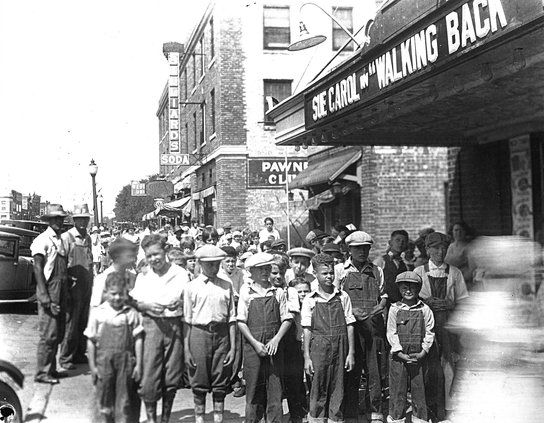
On Jan. 3, the report “Roosevelt makes bid for new taxes for financing National Defense Program: Personally delivering message at the opening of Congress, he also calls for extension of Reciprocal Trade Treaty,” indicated this tone of frivolity would soon change.
“President Roosevelt coupled an emphatic plea for national unity in the face of war-born disintegration abroad today with a recommendation that congress vote for new taxes to finance “emergency spending” for a “common sense” national defense.”
Meanwhile, the Great Bend City Council reportedly threatened to clamp down on illegal gambling at three pool halls operating within the city.
Arnold’s Recreation at 1205 Main Street, the Rendezvous at 2017 Forest Ave. and the Pawnee Club at 1203 Main Street, were named.
The drubbing resulted from discussion at the city council meeting the week before when “intimations were made that gambling was practiced in connection with the games (dominos),” and councilmen talked of creating an ordinance prohibiting the games.
Owners of the establishments denied any knowledge of gambling happening in their businesses.
B.H. Arnold “wished to have the games continued in view of the fact that there were a lot of “southern boys” in Great Bend who enjoyed the game and did not wish to play pool.”
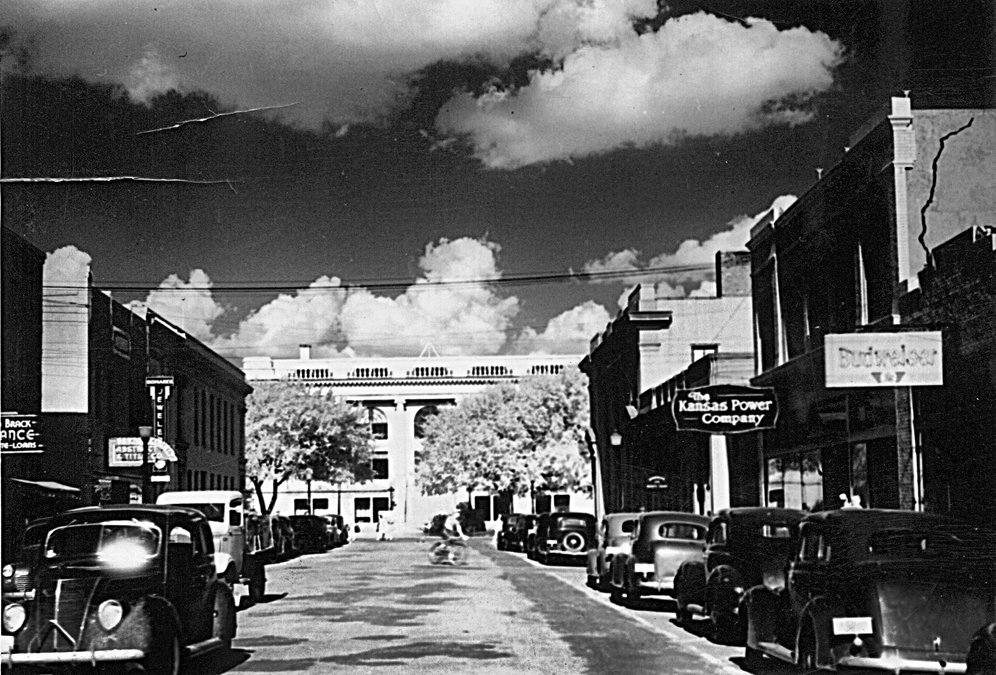
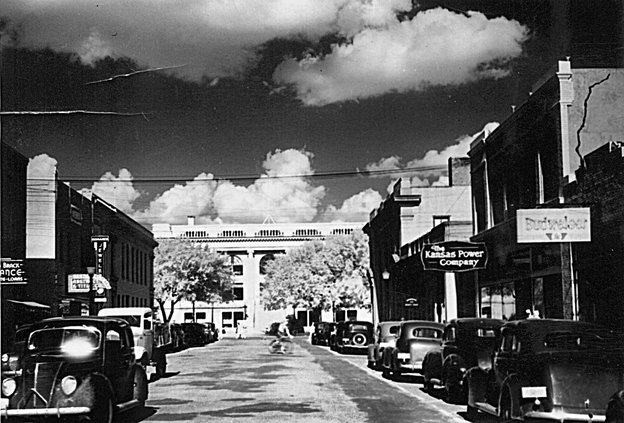
Ed Gumbir, owner of the Rendezvous, “said that his place was frequented by a large number of farmers who enjoyed the game and he too wished to have them continued.”
Councilmen, noting that the evidence was indeed hearsay, threatened to revoke the pool hall licenses if they ascertained gambling was happening there, and advised they would have plainclothes police “frequent the places more often to see that no laws were being violated.”
There was also a rule that boys under 19 needed a permit from their parents allowing them to play pool at the clubs. There were accusations that the owners were turning a blind eye to this practice also. This, they denied, assuring the council that when they discovered underage players without permits, they would ask them to stop.
Today, these establishments are lost to history. However, dominoes is still popular all over the world, and we found rules to a few different games at https://bargames101.com/howtoplaydominoes/ . You’ll find rules to Mexican Train there, which is a fun game for any age and number of people.
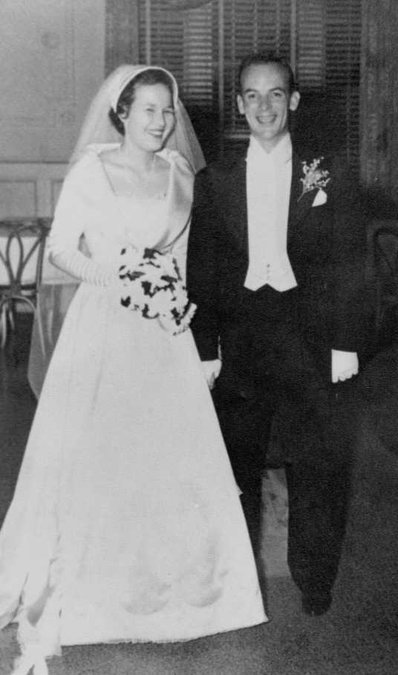
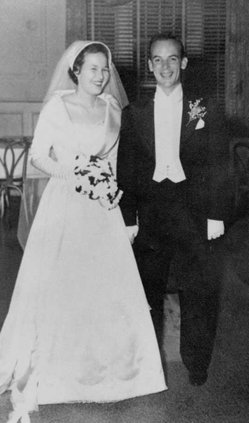
Leap Year clearance sale
Perhaps, while pursuing your Netflix suggestions, you’ve seen the romantic comedy “Leap Year.” Here’s the premise: Young woman, Anna Brady (Amy Adams), is frustrated that her boyfriend, Jeremy Sloane (Adam Scott), has not proposed to her after four years. Anna wishes to invoke an Irish tradition that a man who is proposed to on leap day must accept the proposal.
It sounds contrived, and it is, but a fun movie nonetheless. Imagine our surprise when we found a three-column feature in the Jan. 1, 1940 Great Bend Daily Tribune, “Leap Year Bargain Sale.”
“Begins Tuesday morning and ends when all stock is cleared out: Completing its inventory for the beginning of the new year, the Leap Year Bargain Society finds that it has a large number of real bargains and is offering these to the highest and best bidder. Not one item shelf worn, moth eaten or run down.” In small print, “address all communications to the Leap Year Bargain Society.”
Appearing like an advertisement, the “advertisement” was followed by brief descriptions of 40 apparently eligible bachelors and calls to action to the unwed ladies of the city to “phone, write or wire if you want this duck,” and “Someone ought to pick up this cookie.”
Among them was the Tribune’s own Bill Townsley.
“Tribune news man Bill is as fresh as the morning dew, wears his clothes well and has had several proposals, ‘tis said, and at the present time is partial to a light complexioned girl who came here from Oklahoma. Nothing in the way of matrimony has taken place yet. He’s one of our prize bargains. May have to use a nest trap to catch him but once caught he would stand the gaff.”
According to MyHeritage.com, William L. Townsley wed a Miss Broadhurst from Oklahoma in 1940 at age 24. It appears they later divorced, and he married and divorced twice more.


FM is introduced
On Jan. 5, 1940, the Federal Communications Commission heard the first transmission of FM radio with a clear, static-free signal. Still, it would be about 20 years before a stereo standard FM signal was commercially available.
In the early days of 1940, the Great Bend Daily Tribune reported local radio station KVGB increased its reception radios by 30 percent when it upgraded its station to broadcast with 250 watts of power, up from the 100 watts since the station went on the air in 1937.
Great Bend Station announces wider service area, more power. It all started at 6:30 a.m. on Friday, Jan. 5, 1940, when the station went on the air for the day (it was not a 24-hour station at the time).
“With the power increase to 250 watts, KVGB also welcomed the new year by extending the broadcast day a half hour, and is now on the air each morning at 6:30 o’clock with a musical clock program and going off the air at 10 p.m.
A lot has changed in the past 80 years, for radio as well as newspaper, and much of that thanks to a whole new medium, the internet.





